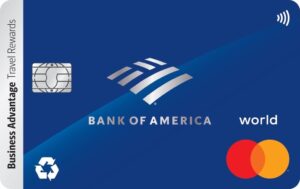Wondering how to qualify for a business credit card—as well as how business credit cards work and how they can enhance your business operations? If your answer is yes, you are in the right place. Read this article till the end to understand how business credit cards work, how they benefit your enterprise, and how to apply for business credit cards in general.
To Qualify for a Business Credit Card:
- Understand What A Business Credit Card Is
- Know How Business Credit Cards Work
- Know The Pros and Cons of Business Credit Cards
- Determine If You Qualify for a Business Credit Card
- Understand The Application Process
- Know How to Apply for a Business Credit Card With Bad Credit
Ready? Let’s get into it!
1. Understand What A Business Credit Card Is
To qualify for a business credit card, first understand what the card is all about. A business credit card is uniquely tailored to meet specific needs in your venture. It offers a higher credit limit with bonus rewards potential. If you own a business, use a business credit card to purchase everything from equipment and furniture to inventory. Use your business credit card to pay suppliers as well as other net-30 vendors who accept credit card payments.
If you’re a new business owner, make purchases from your business profits to build business credit. Good business credit qualifies you for different business credit card options. Use your business credit card primarily for business purposes and make sure you separate your personal and business expenses.
With a business credit card, you can enjoy higher credit limits and other valuable benefits, such as
business expense monitoring, employee cost tracking and business tax planning.
>>>MORE: What Is a Corporate Credit Card
2. Know How Business Credit Cards Work
If you own a personal credit card, you already has an idea of how business credit cards work. The only differences lie in the potentially higher credit limit reward potential inherent in business credit cards, as well as the ability to add employee cards and access more sophisticated expense analytics.
Charge your business expenses to your business credit card and receive a statement of your expenses after your billing cycle. At the end of each billing cycle, check the total amount outstanding as well as the minimum amount due. Some business credit cards are charge cards, meaning that you make full payment of how much you borrow each month.
Your interest on each purchase premises on your billing cycle. Pay zero interest on all purchases if you clear your bill each month. You don’t need an employer identification number (EIN) to apply for a business credit card—a sole proprietor can also apply for a business credit card. Understand your business needs to decide which business credit card is best for your operations.
3. Know the Pros and Cons of Business Credit Cards
- Pros of Business Credit Cards
Business credit cards come in handy when your business requires urgent funds to aid operations. Use a business credit card to:
- Monitor business spending. Utilize the business credit card to separate your personal spending from business expenses so you can prepare tax returns and keep comprehensive business financial records.
- Manage employee cards. Add employees to your business credit card and grant the access to make business-related expenses on your business credit card. Monitor each employee’s expenses and set restrictions where necessary.
- Enjoy higher credit limits. In contrast to personal credit cards, you can access higher credit limits with business credit cards.
- Access additional interest-free periods. Confirm if your business credit card issuer offers additional interest-free period. If yes, enjoy additional grace period to clear your balance without incurring interest.
- Experience access to funding with ease. Make all business related online purchases with your business credit card. Then cashless policy is fast gaining more ground. So holding a card is far convenient than carrying a lump sum.
- Make secured online purchases. Dispute any unjustifiable charges on your account. If you make a purchase, and the seller refuses to deliver the item, request for a chargeback.
- Get funds quickly to meet your business needs. It’s way faster to get an approval for a business credit card than a business loan.
- Categorize your expenses. To make your venture’s accounting easier, categorize your operational expenses, such as meals, office supplies, hotels, office supplies, etc.
- Build your enterprise’s credit history. Use a business credit card to build your company’s credit history. With that, you qualify for other business credit products.
- Enjoy favorable terms. Enjoy favorable repayment terms such as lower interest rates, discounts for early repayment, and higher credit limits.
- Cons of Business Credit Cards
Business credit cards also have a few cons to consider before you apply for one.
- Personal credit worthiness. Business credit card issuers often require a good or excellent personal credit score from owners.
- Security inconsistencies. Protect your business credit card and limit how often you provide your card details online to avoid fraudulent charges.
- Little or no buying protection. Double check an item before you pay for it with a business credit card. Modifying billing errors, reverting unwarranted charges, or returning an item are difficult with business credit cards.
- Employee abuse. If you don’t manage your employees’ spendings, they can abuse the privilege.
- Explosive APRs. You’re likely to end up paying higher interest rates than getting a business loan.
4. Confirm If You Qualify for a Business Credit Card
To qualify for a business credit card, know the eligibility requirements. You need a business you run—this has nothing to do with whether you run a small store business with no staff or a medium-sized enterprise with many employees.
Then, to qualify for a business credit card, your business must generate consistent profits with proof. If you fall in any of the following categories, you’re legally eligible to apply for a business credit card:
- Freelancers
- Self-employed
- Corporations
- Limited liability companies
- Sole proprietors
- Small business owners
- Nonprofits
5. Understand The Application Process
To qualify for a business credit card, understand the application process. Check your eligibility status by comparing your credit score with what the card issuer requires. Most business credit card issuers welcome good and excellent credit scores. If you have fair or bad credit, consider a secured business credit card.
Compare different business credit cards and choose the one that meets your needs. Factor to consider before you choose your business credit card issuer include
- intro APR (go for one with zero percent)
- annual fee
- transaction fee for foreign purchases
- rewards program
- welcome bonus
Submit your application and wait for approval. General requirements while applying are your business’s legal name, email address and phone number, time in business, business revenue, number of employees, business legal documents, and federal tax ID.
>>>GET SMARTER: How Business Credit Cards Work
6. Know How to Apply for a Business Credit Card with Bad Credit
If you have bad credit, know the best practices to follow so you can get a business credit card. Don’t think you can’t get a business credit card because of bad credit.
- Build your personal credit score. Visit Annualcreditreport.com to check your personal credit reports from Experian, Equifax, or TransUnion. Study the reports and find out what affects your personal credit score negatively. To build your personal credit score and increase your chances of getting an approval for a business credit card, make on-time payments, limit your credit card debt, and so on.
- Research the best card that meet your enterprise’s needs. As you build your personal credit score, look out for best business credit card alternatives that meet your needs.
- Apply for a business loan. If getting a business credit card proves unpromising because of bad credit, consider a business loan instead. Apply to business lenders who check business assets and income instead of creditworthiness in approving a business loan application. Prepare your business’s financial statements that show your lender you’re lower risk borrower. Write a comprehensive business plan that details how you intend to spend every single dollar your borrow.
Recap
To qualify for a business credit card, understand what a business credit card is, know how business credit cards work, know the pros and cons of business credit cards, and determine if you’re eligible for a business credit card. Understand the application process, and know how to apply for a business credit card with bad credit (if need be).








No Comment! Be the first one.